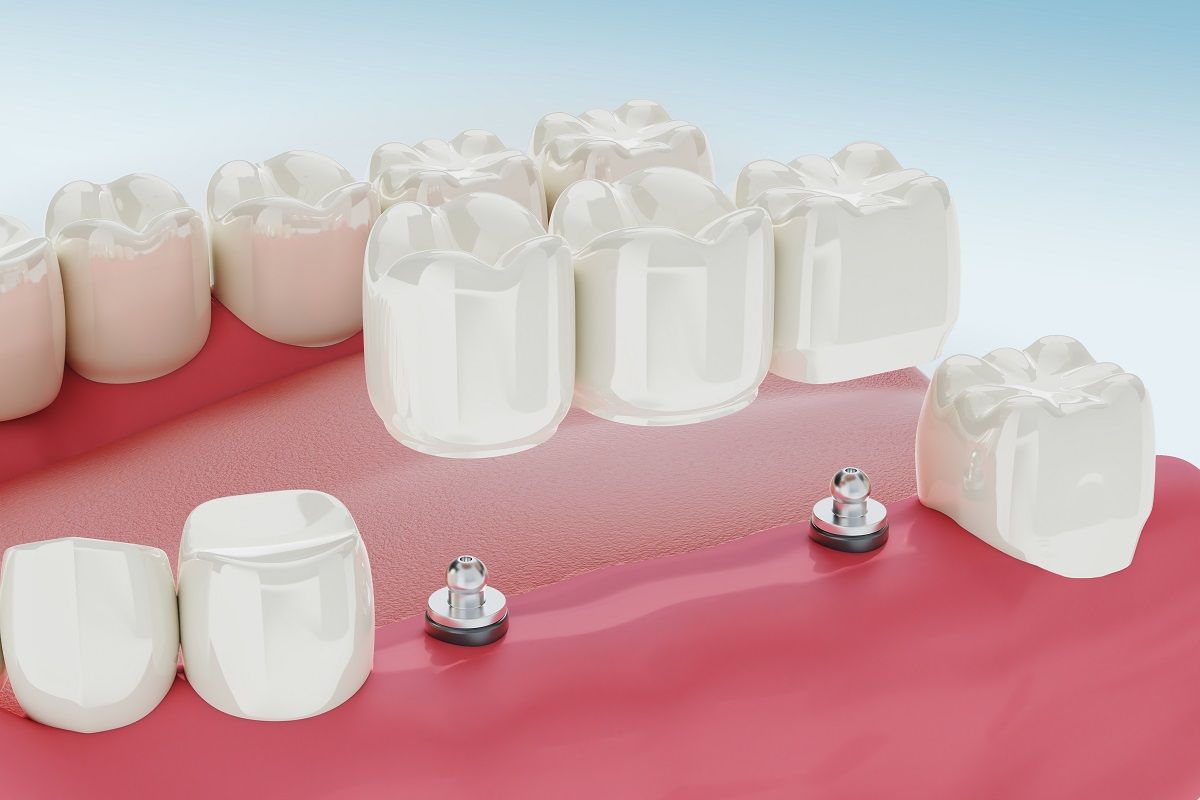A captivating smile is a reflection of confidence and good oral health. However, tooth loss can significantly impact self-esteem and oral function. Fortunately, dental bridges have emerged as a remarkable solution to restore a smile’s aesthetics and functionality.
These dental appliances bridge the gap left by missing teeth, providing numerous advantages beyond cosmetic enhancements. Dental bridges revitalize smiles and rejuvenate oral health by blending with natural teeth.
Uses and Benefits of Dental Bridges
If you are a candidate for dental bridges, then it’s essential to understand the uses and benefits of dental bridges. Doing so will help you to make an informed choice about your oral health functioning. Let’s have a look at some of the dominant ones.
- Filling the Gap:
Tooth loss can significantly impact your smile and oral function, whether caused by injury, decay, or other dental issues. Dental bridges consist of pontics, artificial teeth supported by dental implants, or abutment teeth on either side of the space. By seamlessly blending with your natural teeth, bridges reinstate the aesthetics of your smile and prevent teeth shifting.
- Aesthetic Enhancement:
Dental bridges offer remarkable aesthetic benefits. The pontics match your natural teeth and ensure a seamless and natural-looking smile. This cosmetic enhancement can boost your self-confidence and improve your overall appearance, helping you feel more comfortable and at ease when interacting with others.
- Improved Chewing and Speaking:
Tooth loss can make it challenging to bite and chew properly, affecting your ability to enjoy various foods. Dental bridges restore chewing function by replacing missing teeth, allowing you to eat comfortably and enjoy your favorite meals. Moreover, bridges help maintain proper speech patterns by filling the gaps that can cause difficulties in articulation.

- Preserving Dental Alignment:
When a tooth is lost, the surrounding teeth may gradually shift into the space, causing misalignment and bite problems. Dental bridges prevent these unwanted dental shifts by filling the gap and supporting the adjacent teeth. By preserving the alignment of your teeth, bridges help avoid bite abnormalities and jaw joint disorders, promoting overall oral health.
- Enhanced Oral Health:
Dental bridges contribute to improved oral health in several ways. They fill the space left by missing teeth, preventing food particles from getting trapped in the gaps and reducing the risk of decay and gum disease. Moreover, bridges distribute the forces during chewing evenly across the supporting teeth or dental implants, reducing the strain on individual teeth and preventing excessive wear or damage.
- Convenience and Durability:
Dental bridges provide a durable and long-lasting alternative for replacing missing teeth. Unlike removable dentures, bridges eliminate the need for daily removal and cleaning. It eliminates the adhesive hassle and ensures a more seamless and natural experience. With proper maintenance and routine dental check-ups, dental bridges can offer a durable solution that lasts for an extended period, effectively addressing the issue of missing teeth in the long run.
Quality of Smile with Dental Bridges
Dental bridges play a significant role in enhancing the quality of your smile. Dental bridges offer a reliable solution to restore your smile’s aesthetics and functionality, whether you have one missing tooth or several adjacent ones. Here are some key points highlighting the quality of the smile achieved with dental bridges:
- Natural-Looking Appearance:
Dental bridges replicate the look and feel of natural teeth. With dental bridges, you can achieve a restored smile that appears authentic and enhances your facial features. Dental bridges offer a genuine, restored smile that complements your overall appearance. With their ability to blend seamlessly, dental bridges allow you to regain a smile that fills the gaps, looks natural, and enhances your confidence. You can confidently share your beautiful, restored smile with the world, knowing it looks and feels like your teeth.
“Dental bridges bridge the gaps in your smile, restoring both the aesthetics and functionality of your teeth.”
- Restored Symmetry and Proportion:
Missing teeth can disrupt the symmetry and proportion of your smile. Dental bridges help restore the natural balance of your teeth by filling the gaps and aligning them properly. Bridges contribute to a more symmetrical smile by replacing missing teeth, enhancing its overall aesthetics and visual appeal.
- Enhanced Confidence:
The quality of your smile can significantly impact your self-confidence and self-esteem. By filling the gaps and restoring a complete smile, bridges allow you to smile confidently and feel more at ease in social and professional situations. The improved quality of your smile can positively affect your overall well-being and how you interact with others.
How Dental Bridges Improve Your Oral Health Functioning?
Dental bridges play a significant role in improving your oral health functioning. Dental bridges offer several benefits that contribute to optimal oral health by addressing the gaps created by missing teeth.

Let’s explore how dental bridges improve your oral health functioning:
- Preventing Dental Shifting: The surrounding teeth may gradually shift or drift into space when a tooth is lost. It can lead to misalignment, bite problems, and potential issues with jaw joint disorders. Dental bridges help prevent dental shifting by filling the gaps and supporting the adjacent teeth. The bridge keeps the neighboring teeth in their proper positions, maintaining dental alignment and promoting a healthy bite.
- Restoring Chewing Function: Missing teeth can significantly impact your ability to bite and chew properly. It can also limit your food choices and affect your overall nutrition. Dental bridges restore chewing function by replacing missing teeth with functional artificial teeth. The bridge allows you to effectively chew various foods, ensuring proper digestion and nutrient intake. By restoring your chewing function, dental bridges contribute to overall oral health and well-being.
- Supporting Jawbone Health: The underlying jawbone may deteriorate when a tooth is lost. The tooth root is no longer present to stimulate the bone and maintain its density. Dental bridges help support jawbone health by providing functional tooth replacements that enable the underlying bone. The bridge transfers forces during chewing to the jawbone, which helps preserve its density and prevent bone loss. By maintaining a healthy jawbone, dental bridges support the stability and longevity of your remaining natural teeth.
- Preventing Gum Disease and Decay: Gaps created by missing teeth can create spaces where food particles and bacteria can accumulate, increasing the risk of gum disease and tooth decay. Dental bridges fill these spaces, preventing the accumulation of debris and making it easier to maintain good oral hygiene. Proper oral hygiene, including brushing, flossing, and regular dental check-ups, becomes more effective and efficient with dental bridges. By preventing gum disease and decay, dental bridges contribute to a healthier oral environment.
- Restoring Speech Patterns: Tooth loss can affect your ability to pronounce certain sounds and articulate them clearly. Dental bridges play a role in re-establishing your speech patterns by replacing missing teeth and providing support for proper tongue and lip movements. You can speak more clearly and confidently with a complete set of teeth, enhancing your communication skills and overall oral function.
Final Words
Dental bridges offer a reliable and long-lasting solution to restore your smile. With adequate care and routine visits to the dentist, they can provide lasting results, allowing you to enjoy the benefits of a complete and confident smile for years to come. Consult a dental professional if dental bridges are the right choice for you.
Contact your Pinole dentist, Azadeh Hosseini, DDS, or Ghazal Hosseini, DDS, at Top Pinole Dental to learn about the Advantages of Dental Bridges: Restoring Your Smile and Oral Function.
Resource:
Pros And Cons Of Dental Bridges
*This media/content or any other on this website does not prescribe, recommend, or prevent any treatment or procedure. Therefore, we highly recommend that you get the advice of a qualified dentist or other medical practitioners regarding your specific dental condition.*

